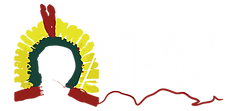INDIGENOUS CULTURE TRANSMISSION PROGRAM

Brazilian Indigenous history starts between 17,000 B.C and 13,000 B.C., a time during which North-Asian migrants crossed the Bering Strait. Prior to the arrival of the Europeans in 1500, there were circa 2,000 tribes and tens of millions of indigenous people speaking hundreds of different languages.
Indigenous culture was, and still is, transmitted orally. But times are changing: most tribes have had a first contact with modern civilization and western culture is spreading quickly among them. In the Xingu Territory, it is estimated that there is a television set in one household out of two. Most adults have a smartphone and are active on social networks. Meanwhile, there are only seven people alive that still speak the Yawalapiti language. Culture loss is therefore a real concern among all the Xingu tribes.
Rainforest Organization cooperates with indigenous organisations for the safeguarding of the tangible and intangible cultural heritage of the TIX. Rainforest Organization also fosters exchange programs for local and international students as well as for researchers to promote intercultural dialogue and indigenous culture transmission.
To safeguard the TIX indigenous culture, Rainforest Organization seeks to foster art production and the recording, gathering and centralization of its ancestral knowledge via a library and media center. Moreover, as part of the ecological restoration program, efforts are deployed to identify, record and promote traditional medicine.
Program supported by


In coordination with our local partners


.jpg)
Alongside our partners, you can make a difference supporting the culture transmission program.
Cause of the indigenous populations of Amazonia, Protection of the biodiversity of the rainforests, Manage and defend tropical forests, Monserve ancestral lands cultures of indigenous peoples, Ecological restoration lands of indigenous peoples, Aritana Institute, Ecological restoration program, Culture Transmission, Forest protection, Health, Education and training program, News,


.png)